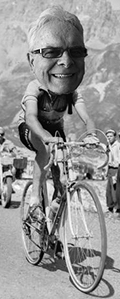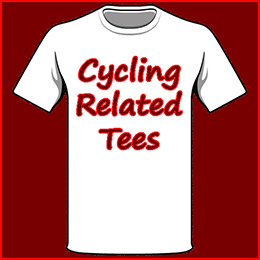Uncertainty
 Sun, August 25, 2019
Sun, August 25, 2019 
I first arrived in the United States in January 1979. I flew into New York’s Kennedy Airport, and was picked up by my new employers, Vic and Mike Fraysee, owners of Paris Sport.
From there it was probably and hour’s drive to Ridgefield Park, New Jersey. About seven miles from New York City on the other side of the Hudson River. The frameshop where I worked was at the back of a bike store that the Fraysee’s owned.
The terms of my initial visa that I had when I entered the US, was that I would return to England before the end of the first year. I could then renew my visa and come back again.
I planned to return to the UK for the Christmas Holidays 1979, which gave me almost a year to work and save for the trip. By the fall of that year, it was clear money was going to be tight and I needed to find some extra cash to meet expenses.
On the corner of the same block where the frameshop was, there happened to be a large warehouse type building. It was home to a company that packaged Christmas wrapping paper. They were hiring seasonal part time workers for an evening shift.
And so it was, I started moonlighting. When I finished my day job building frames, I would work 6 to 10 in the Christmas wrapping paper plant.
It was probably around early November that year, as I took my one-mile morning walk to work, I rounded the corner just off Main Street, Ridgefield Park, to a scene of utter devastation.
The Christmas paper business had burned to the ground in a fire during the night. Only the four brick walls were standing, the roof was gone, and firefighters were cleaning up. All that was left of the place where I had worked the previous evening was a blackened, smoldering pile of rubble.
As I walked slowly past on the opposite side of the street, the cold realization was sinking in. I no longer had a part time job, no extra income, and possibly no Christmas trip to England.
However, within two weeks, the owners of the business had salvaged and repaired some of the machinery and had started up again in another building close by.
With only a few short weeks left before Christmas, they were now desperate to replace their lost stock, plus make up for two weeks lost production. I not only got my part time job back, I was now working a full 8-hour shift, from 6pm. to 2am.
There was a feeling amongst the workers, of wanting to help the owners succeed. They had not given up, we were not giving up.
I was also working two shifts on the weekends. The result was I probably made more money than if there had not been a fire. I made the trip to England with cash to spare.
I often think of this incident and a quote in the form of a question,
“How boring would life be without uncertainty?”
We need certainty in our lives to feel secure. We need to be reasonably certain that we will wake up in the morning, and that our loved ones will still be there. That our job will be there and the building not burned to the ground as I found.
Then every so often, life throws us a curve, something unexpected. Without the unexpected, life would be boring. Curved roads are more interesting than straight roads, we don’t know what is round that next bend.
Within uncertainty, there is adventure, excitement. I have always found in the past whenever a relationship has turned sour, or I have lost a job, when I look back years later, it was for the good.
Disappointments, for the most part are only temporary. Quite often they bring about an outcome that is better than originally expected. Throughout my life I’ve had many disappointments, but very few regrets.




















Reader Comments (5)
Very true Dave.
PS - Interesting piece in today's Guardian about Beryl Burton -
https://www.theguardian.com/sport/blog/2019/aug/26/beryl-burton-liquorice-allsorts-shake-up-cycling
This is wonderful and true. I think it's also a lesson for the challenges we face as a civilization. Thanks, Dave
thank you!
Off-topic Dave, but here's a video about refuellign on the Tour in the 60's on YouTube you might like / 3 minutes:
https://aeon.co/videos/grab-bags-cafe-raids-and-booze-how-tour-de-france-cyclists-refuelled-in-the-1960s